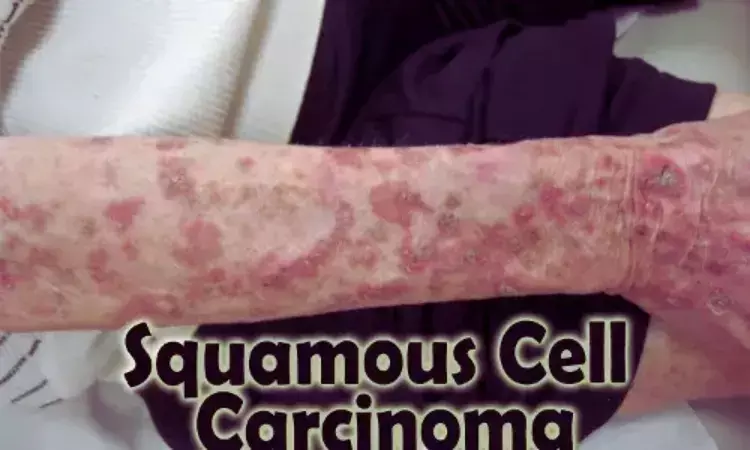- Home
- Medical news & Guidelines
- Anesthesiology
- Cardiology and CTVS
- Critical Care
- Dentistry
- Dermatology
- Diabetes and Endocrinology
- ENT
- Gastroenterology
- Medicine
- Nephrology
- Neurology
- Obstretics-Gynaecology
- Oncology
- Ophthalmology
- Orthopaedics
- Pediatrics-Neonatology
- Psychiatry
- Pulmonology
- Radiology
- Surgery
- Urology
- Laboratory Medicine
- Diet
- Nursing
- Paramedical
- Physiotherapy
- Health news
- Fact Check
- Bone Health Fact Check
- Brain Health Fact Check
- Cancer Related Fact Check
- Child Care Fact Check
- Dental and oral health fact check
- Diabetes and metabolic health fact check
- Diet and Nutrition Fact Check
- Eye and ENT Care Fact Check
- Fitness fact check
- Gut health fact check
- Heart health fact check
- Kidney health fact check
- Medical education fact check
- Men's health fact check
- Respiratory fact check
- Skin and hair care fact check
- Vaccine and Immunization fact check
- Women's health fact check
- AYUSH
- State News
- Andaman and Nicobar Islands
- Andhra Pradesh
- Arunachal Pradesh
- Assam
- Bihar
- Chandigarh
- Chattisgarh
- Dadra and Nagar Haveli
- Daman and Diu
- Delhi
- Goa
- Gujarat
- Haryana
- Himachal Pradesh
- Jammu & Kashmir
- Jharkhand
- Karnataka
- Kerala
- Ladakh
- Lakshadweep
- Madhya Pradesh
- Maharashtra
- Manipur
- Meghalaya
- Mizoram
- Nagaland
- Odisha
- Puducherry
- Punjab
- Rajasthan
- Sikkim
- Tamil Nadu
- Telangana
- Tripura
- Uttar Pradesh
- Uttrakhand
- West Bengal
- Medical Education
- Industry
Metformin has Metabolic Intervention Potential for Combating Aggressive Skin Cancer

Austria: Cutaneous squamous cell carcinomas (cSCC), a type of skin cancer, are typically treatable. However, high-risk cSCCs, particularly in patients with recessive dystrophic epidermolysis bullosa (RDEB), can be extremely aggressive and challenging to manage. RDEB patients are at a significantly increased risk, with a 68% cumulative risk of developing life-threatening cSCCs by the age of 35 and a 70% risk of death by the age of 45 due to these aggressive cancers. Despite aggressive treatment, cSCC is the leading cause of premature mortality in RDEB patients, highlighting the urgent need for new treatment strategies.
Recent research study published in the Journal Of The European Academy Of Dermatology And Venereology by T. Welponer and colleagues has pointed to the role of altered metabolism in the development and progression of cSCC, making it a potential therapeutic target. In this study, scientists aimed to investigate whether targeting the energy metabolism of tumour cells could hinder the aggressive growth of cSCCs.
Using gene expression data, the researchers analyzed the metabolic profiles of RDEB-associated SCC (RDEB-SCC) cells. They compared these profiles to non-malignant RDEB keratinocytes and found a significant divergence in cell energetics. The tumour cells displayed enhanced respiration and glycolysis, indicating increased metabolic activity.
Further experiments involving real-time metabolic profiling confirmed these findings and revealed metabolic plasticity in RDEB-SCC cells. Building on this knowledge, the researchers turned to metformin, a drug commonly used to treat type 2 diabetes, as a potential therapeutic agent for aggressive cSCCs.
Metformin treatment effectively disrupted both respiration and glycolysis in RDEB-SCC cells, inhibiting their proliferation in vitro. Importantly, when applied to a murine model of fast-growing cSCC, metformin delayed tumour onset and slowed tumour growth. This translated to a remarkable 129% increase in median overall survival in the animal model.
These promising findings suggest that metformin holds anti-neoplastic properties that can effectively target the aggressive growth of high-risk cSCCs by interfering with key metabolic processes. While further research is needed, this study provides hope for the development of new therapies to improve outcomes for patients with these challenging skin cancers.
Reference:
Welponer, T., Weber, D. D., Trattner, L., Tockner, B., Aminzadeh-Gohari, S., Leb-Reichl, V., Kaufmann, A., Zauner, R., Wimmer, M., Wally, V., Felder, T. K., Strunk, D., Koller, U., Bauer, J. W., Kofler, B., Guttmann-Gruber, C., & Hofbauer, J. P. (2023). Metformin shows anti‐neoplastic properties by inhibition of oxidative phosphorylation and glycolysis in epidermolysis bullosa‐associated aggressive cutaneous squamous cell carcinoma. Journal of the European Academy of Dermatology and Venereology: JEADV. https://doi.org/10.1111/jdv.19488
Dr Kamal Kant Kohli-MBBS, DTCD- a chest specialist with more than 30 years of practice and a flair for writing clinical articles, Dr Kamal Kant Kohli joined Medical Dialogues as a Chief Editor of Medical News. Besides writing articles, as an editor, he proofreads and verifies all the medical content published on Medical Dialogues including those coming from journals, studies,medical conferences,guidelines etc. Email: drkohli@medicaldialogues.in. Contact no. 011-43720751


